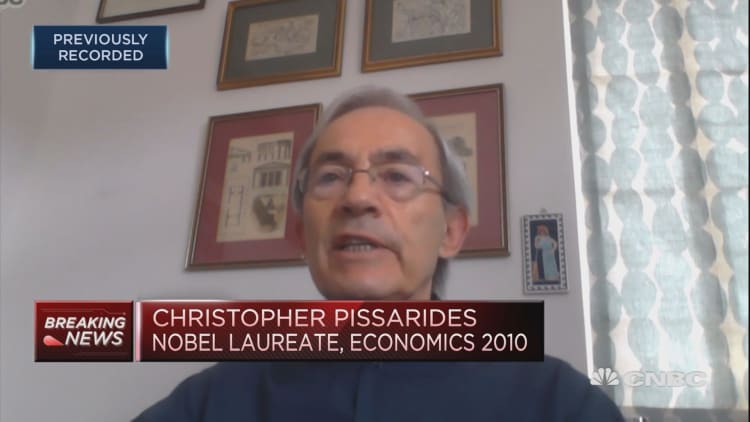George Soros suggested Europe should issue debt that would never have to be paid back as a way to finance the costs of the Covid-19 crisis.
As the European Union faces the deepest economic crisis since the Great Depression, the billionaire investor said the 27-nation group should issue "Perpetual Bonds" — meaning the principal amount would never be repaid, only the annual interest payments.They are also known as consols.
"A 1 trillion-euro bond would cost 5 billion euros a year, assuming an interest rate of 0.5%. The consols would not need to be sold all at once; they could be issued in tranches and they would be snatched up by long-term investors like life insurance companies," Soros said in an interview with the Dutch newspaper De Telegraaf published Friday.
Under this plan, "the only mutual obligation is the payment of the annual interest, which is negligible," Soros said.
The EU has been at odds over the last few months on the best way to deal with the shock from the coronavirus. The region's economy is expected to contract by more than 7% this year, but because the countries have very different debt piles, the members have clashed about whether financial stimulus should be done via loans or bonds.

Germany and France — the two largest euro economies — announced Monday a ground-breaking proposal that could see the EU issuing large amounts of debt to mitigate the crisis.
They said the European Commission, the EU's executive arm, should raise 500 billion euros ($545 billion) in public markets. This money would then be used as grants for sectors and regions where the impact of the coronavirus has been the most stark.
The allocation of these funds would be done via the European budget — a common basket that receives contributions from all 27 member countries and which finances projects across the region.
However, a small group of nations has criticized the plan, saying it should provide loans instead of grants. The latter is more beneficial for countries that have large debt piles, such as Italy and Greece.
The European Commission will announce further details about new fiscal stimulus next week. The discussion is set to drag for a couple more weeks as the 27 nations look for a consensus.
In the meantime, the European Central Bank is buying government debt, and about 540 billion euros are available through various plans to also support countries in the current crisis.


